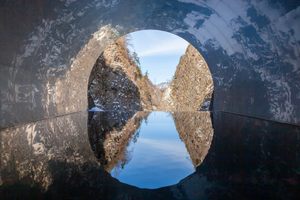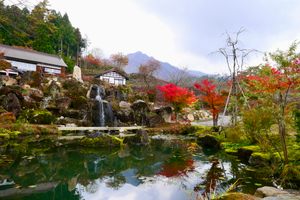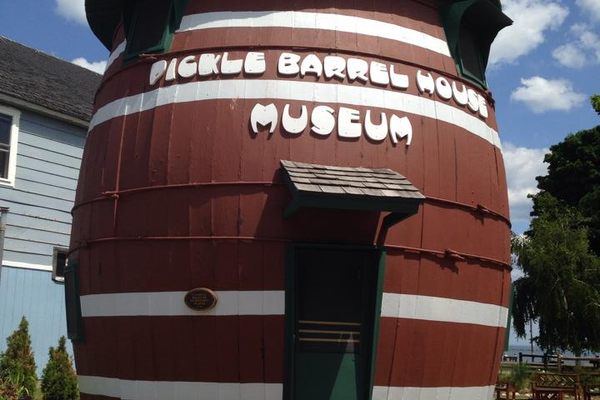About
Perched in the hills of Niigata prefecture, the Echigo-Matsunoyama Museum of Natural Science is known for its unusual architecture, impressive butterfly collection, and the heavy snows that annually engulf it.
With an exterior of pre-rusted steel the museum looks more like an industrial relic than a space for science exhibits. Explaining his inspiration for the building, architect Takaharu Tezuka said, "I wanted to make a building that looks like a ruin."
And with the extreme environment and weather of Japan's snow country, the building resembles some abstract ruin more each year. During the winter, the snow can reach a depth of 23 feet, burying everything but the building's lookout tower.
Inside the museum, large pane-less windows allow visitors to see the snow piled up outside and occasionally the life forms that are suspended within it. To withstand the enormous pressure of the snow, the windows are made of three-inch thick composite acrylic, the same material used in aquariums. Nevertheless, the stress put on the structure is so great that the building can be heard 'groaning' in the winter.
While the tower serves as the only prominent landmark in winter's snow-filled landscape, it also offers sweeping views of the surrounding mountains and meadows. Climbing up its dimly lit staircase to the top, visitors are also immersed in a solar-powered light-and-sound art installation.
The tower is one example of the husband-and-wife architects Takaharu and Yui Tezuka's attempt to imbue the building with the theme of experiencing cosmic rays, water, sounds and nature through collaboration with five artists.
In addition to the large butterfly collection, a must-see exhibit is "The Amusing Boxes." Contained in around 200 drawers, this display is a collection of "oddments from the nature and culture of Matsunoyama." Among the items found in the exhibit are snakeskins, cicada shells, and objects made at the museum's workshops.
Related Tags
Hidden Japan: Sado Island, Nara & Kyoto
Explore a different side of Japan.
Book NowCommunity Contributors
Added By
Published
March 23, 2010

































